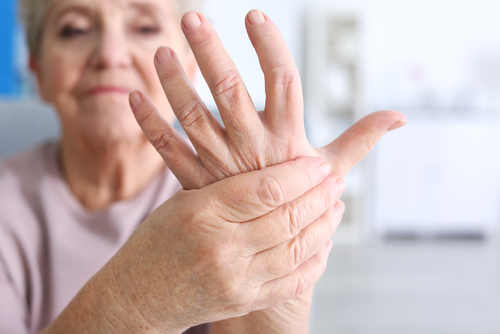You may not think much about your knees, back, shoulders, and other joints until they cause pain or stop functioning properly. But the joints are an important part of everyone?s daily lives ? if they aren?t healthy or if you suffer from joint pain, it can make performing many tasks that most of us take for granted challenging if not impossible. As you get older, you?ve probably noticed the greatest amount of pain in your neck and your ankles. That?s because the modern office environment is not very suitable to joint health. Aging does not have to mean deterioration. In fact, with a little bit of fitness and the right diet, your joints can age healthy and strong. Making efforts to improve your joint health could go a long way in improving your overall quality of life, now and in the future.
Get Regular Exercise
Regular physical activity is a must for healthy joints. Not only should you incorporate regular exercise into your daily habits, if you work a desk job, be sure to get up and move around at least once an hour. Breaking a sedentary lifestyle can be difficult, which is why it?s important to ease yourself back into regular exercise. You could even consider consulting a personal trainer or fitness expert to assist. Of course, you don?t want to put too much stress on your joints with high impact strength training. Those who already struggle with joint issues may want to choose more low impact activities like walking, swimming, rowing or biking, as high impact exercises like running can increase the risk of cartilage damage and joint injuries.
Eat a Nutritious Diet and Drink Lots of Water
A healthy diet is a must for your overall physical and mental health, including joint health. A diet focused on whole foods from the Earth, including lots of antioxidant-rich fruits and veggies like dark leafy greens along with foods that contain a high amount of omega-3 fatty acids like salmon, while eliminating or limiting processed junk and fast foods, is a great way to improve and maintain healthy joints. Staying hydrated helps too ? aim to drink at least eight 8-ounce glasses of water a day. That nutritious diet can also help one maintain a more ideal body weight. Carrying excess body weight adds stress to the joints, especially weight-bearing joints. Obesity significantly raises your risk of rheumatoid arthritis and also weakens your body?s ability to fight against inflammation and other costly diseases.
Take a Collagen Supplement
Working out is great for keeping joints healthy, but if you exercise a lot it tends to put lots of pressure on the joints. Taking a collagen supplement helps to improve resilience, keeping the joints strong. As we age, our natural collagen levels are reduced, which can cause the bones to become more brittle and cartilage to wear, while joints may swell, ache and feel stiffer. Taking a collagen supplement, as shown in a number of studies, including one from the University of Illinois College of Medicine at Chicago, can help joints move more easily again, ease pain and reduce the risk of deterioration. This can be a more effective treatment, in combination with diet and exercise, then standard over-the-counter pain relievers and medications.
Physical Therapy
Not only can physical therapy for a pinched nerve in the neck do wonders for easing pain and movement, physical therapy can help strengthen weak joints. Booking an appointment may help you become more active by manipulation of the joints which makes them more mobile. Physical therapists are trained to assess the problem of joint pain and provide physical exercise and dietary guidance that can reduce inflammation and promote proper joint health. Physical therapy also provides additional benefits, such as increasing joint strength and your body?s flexibility/range of motion.
Stop Smoking
Smoking increases the risk of a long list of health issues, with an especially serious negative effect on the joints and bones. If you smoke, your risk of osteoporosis and fractures goes way up, and you?ll also have a greater risk for developing rheumatoid arthritis and low back pain. The sooner you stop smoking, the sooner your joint health will improve. There are resources to help you stop smoking once and for all.
Conclusion
Joint health may not be something we think about as we age, but it can have very serious long-term effects on our quality of life. Surveys have shown that people with rheumatoid arthritis report a direct decrease in their overall quality of life. Not only can joint pain be debilitating on a daily basis, but it can also limit your ability to perform your job and certain physical activities. Fighting joint pain and preventing arthritis is not a silver bullet. Rather, studies have shown that regular physical exercise and following the right dietary guidelines can help patients manage joint pain and even get rid of it altogether. If you or a loved one is struggling with joint pain, be sure to consult a doctor to help manage your symptoms.

